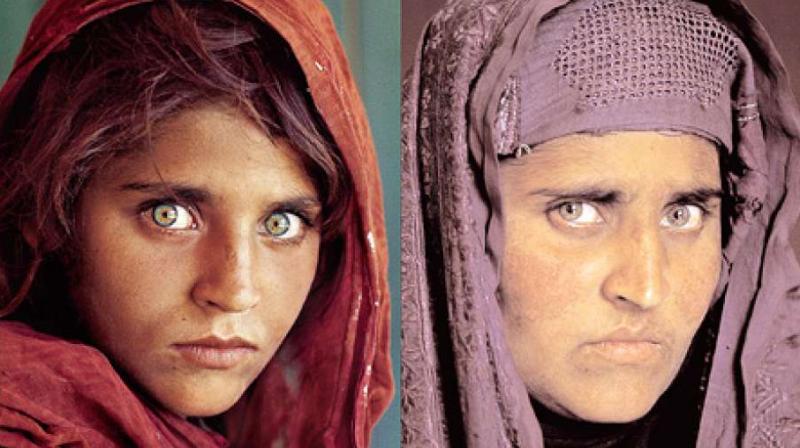Nat Geo's iconic green-eyed Afghan refugee arrested for faking ID
She now faces seven to 14 years prison time and fine between $3,000 to $5,000 if convicted by court over fraud.

Peshawar: Sharbat Gula, National Geographic’s green eyed Afghan girl who became the face of the Afghan refugee crisis in the mid-eighties, has been arrested by authorities in Pakistan for allegedly producing fake documents.
According to a report in the Dawn, Gula was arrested by the Federal Investigation Agency (FIA) from her residence in Peshawar earlier on Tuesday following a two-year-long investigation.
She was held for forging her identity documents, which included the Computerised National Identity Card. She now faces seven to 14 years prison time and fine between $3,000 to $5,000 if convicted by court over fraud.
Pakistani officials say that Gula applied for a Pakistani identity card in Peshawar in April 2014, using the name Sharbat Bibi.
Gula was married to a baker and lived in one of Afghanistan's non-descript border villages. She was one of thousands of Afghan refugees who managed to dodge Pakistan's computerised system and to get an identity card.
Gula, a mother of three, reportedly holds both Afghan and Pakistani documents both of which have been recovered from her residence by the FIA.
The officer, who issued her the documents, has reportedly availed anticipatory bail to prevent arrest in the case.
The FIA also revealed that relatives living in the present address have refused to identify the two men listed as Gula's son.
An enquiry has been ordered by the National Database and Registration Authority.
Pakistan has launched a crackdown against those who have obtained fake ID cards fraudulently and launched a re-verification campaign across the country.
Officials say NADRA has so far reverified 91 million ID cards and detected 60,675 cards by non nationals fraudulently. A NADRA official told AFP that 2,473 foreigners, mostly Afghans, had voluntarily surrendered their ID cards which they obtained fraudulently.
Some 18 officials of the authority were under investigation for issuing ID cards to foreigners and eight were arrested, the official said.
More than 350,000 Afghan refugees have returned to their war-torn homeland from Pakistan this year, UN data shows, with the torrent of people crossing the border expected to continue.
Pakistan has for decades provided safe haven for millions of Afghans who fled their country after the Soviet invasion of 1979.
Pakistan hosts 1.4 million registered Afghan refugees, according to UNHCR figures from earlier this year, making it the third-largest refugee hosting nation in the world. A further one million unregistered refugees are estimated to be in the country.
Since 2009, Islamabad has repeatedly pushed back a deadline for them to return, but fears are growing that the latest cutoff date in March 2017 will be final.

